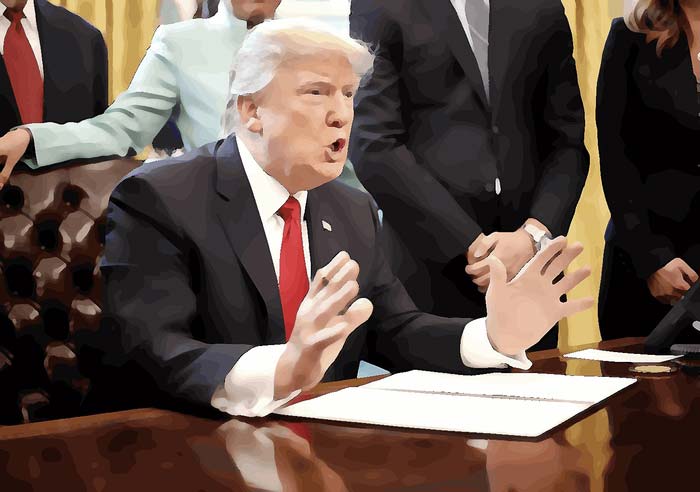
President Donald Trump's first federal budget is very important - but not for the reasons so widely discussed in recent days.
He proposes a large increase in defense and homeland security spending to begin repairing years of Obama cuts in manpower, materiel and readiness. And Trump proposes sharp drops in spending on programs long favored by Democrats. You may have heard the orchestrated howls echoing through like-minded media pages and microphones.
For years Washington budget bees on both sides have hoodwinked Americans by announcing annual budget "cuts" that were not real cuts at all. They were just reductions in scheduled increases, as if government growth were a given. Trump's proposed cuts are very real; 30 percent out of the Environmental Protection Agency's budget, for instance.
As a recently unemployed former president currently enduring a winter month in Polynesia's balmy islands once crowed to minority Republicans, "Elections have consequences."
Indeed, they do. Witness the flurry of Trump's executive orders. Ask Islamic State troops in Syria whether they've noticed an enhanced, more aggressive American military presence since January. Or Trump's numerous "listening sessions" sounding out experts, executives and workers.
But none of this has anything to do with the president's proposed budget, any president's proposed budget. That's because presidents can request, suggest, propose, even plead.
But Congress decides the real spending. As proudly proclaimed by some congressional denizens in D.C.'s fetid political environment, Trump's budget is "DOA." As is any president's budget in modern history.
Trump's federal budget outline is to be expanded in May, when it likely will matter even less, coming after much congressional budgeting. Trump's budget is important only for its political messaging. Which is still very important but has nothing to do with actual spending.
His budget sets out his goals and priorities. It tells Americans - supporters and opponents alike - that the new chief executive actually intends to follow through on major campaign promises - to rebuild the depleted military, to reduce foreign aid giveaways with dubious results, to launch a major infrastructure rebuild, to steer considerable authority back to the states. It sets bargaining parameters with Congress.
It sends the same message abroad to supporters and opponents. This gives the president leverage when it comes to foreign negotiations, which Trump will spend much of the summer negotiating during trips abroad.
To the face of German Chancellor Angela Merkel, Trump emphasized his abiding support for NATO - and his adamant demand that alliance members including Germany live up to their own long-delinquent military spending commitments of 2 percent of gross domestic product. For perspective, U.S. defense spending under President John Kennedy was 10 percent of GDP. Trump dispatched Vice President Mike Pence to Europe last month to deliver the same message.
There are degrees of firmness in diplomacy. The U.S. has long been rather gentle, even hesitant, in its demands of allies, prepared to shoulder the slack. Some countries have taken advantage of that well-intentioned patience through several presidencies.
As you may have noticed already, Trump does not like presenting a patient public persona. That's not how he was successful in real estate and building. Hopefully, he will learn in time to calibrate his manner with friends more than enemies.
But the message of his budget outline is clear: "What you heard in the campaign is what you see in this budget," said Mick Mulvaney, a former representative now running Trump's Office of Management and Budget.
"The top-line message doesn't change," Mulvaney adds. "Rebuild the nation. Don't add to the deficit."
Congress has much on its plate now - the budget, a Supreme Court nomination, Obamacare repeal, raising the debt ceiling and, of course, its inviolate two-week Easter vacation - because some things can't be cut.
As McClatchy's Anita Kumar points out, do not look for much, if any, of Trump's specific proposals to survive their congressional autopsies. Cuts will fall on foreign aid and the EPA's budget, if not to Trump's scale. And the president's proposed $54 billion defense increase might actually grow.
But don't listen to all the moaning from government programs that endure because they can. This budget messaging exercise is merely a rehearsal for both sides.
Andrew Malcolm
McClatchy Washington Bureau
(TNS)
Comment by clicking here.
Malcolm is an author and veteran national and foreign correspondent covering politics since the 1960s.


 Contact The Editor
Contact The Editor
 Articles By This Author
Articles By This Author